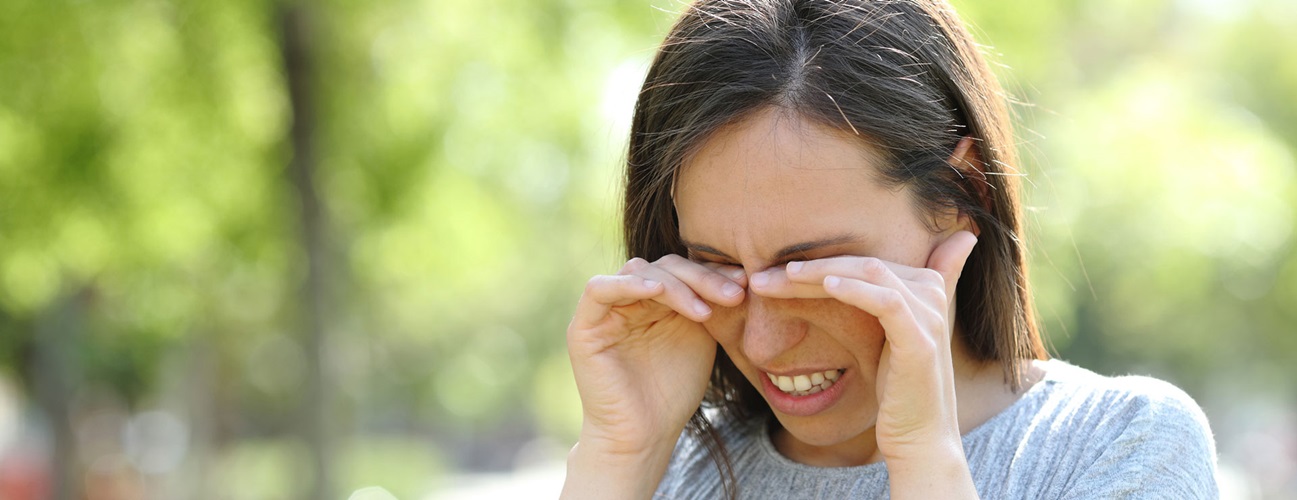How to Manage Eye Allergies and Irritation

Eye allergies and irritation are common ocular conditions that can significantly affect an individual’s quality of life. This article aims to provide an objective and impersonal overview of the management of eye allergies and irritation, focusing on common causes, symptoms, home remedies, medical treatments, and prevention tips.
By exploring these various approaches, readers will gain a comprehensive understanding of the available options for alleviating and preventing eye allergies and irritation.
Promoting effective management strategies can help individuals maintain healthy and comfortable eyes.
Key Takeaways
- Minimize exposure to allergens and pollutants by avoiding triggers like pollen, dust, and pet dander.
- Use home remedies such as cold compresses, saline rinses, and cucumber slices to provide relief from eye allergies and irritation.
- Consult a healthcare professional for accurate diagnosis and medical treatments, including antihistamine drops, immunotherapy injections, mast cell stabilizers, corticosteroids, and NSAIDs.
- Take preventive measures such as keeping windows closed during peak pollen seasons, using air filters and regularly cleaning living spaces, avoiding outdoor activities during high pollen counts, wearing sunglasses as a physical barrier against allergens, and using eye drops containing antihistamines or mast cell stabilizers.
Common Causes of Eye Allergies and Irritation
The common causes of eye allergies and irritation include exposure to allergens such as pollen, dust mites, pet dander, and certain medications. These allergens can trigger an allergic response in individuals, leading to symptoms such as redness, itching, watering, and swelling of the eyes.
While seasonal triggers like pollen are more common during specific times of the year, pollution effects can be a year-round concern. Air pollution, both indoor and outdoor, can exacerbate eye allergies and irritation. Pollutants in the air, such as smoke, diesel exhaust, and particulate matter, can irritate the eyes and worsen allergic reactions.
It is important for individuals with eye allergies to be aware of these common causes and take necessary precautions to minimize exposure to allergens and pollutants.
Symptoms to Look Out For
Common symptoms of eye allergies and irritation include redness, itching, tearing, and swollen eyelids. These symptoms can greatly affect an individual’s quality of life, causing discomfort and hindering daily activities. Recognizing and understanding these symptoms is crucial in managing eye allergies and irritation effectively.
Here are some additional symptoms to look out for:
- Dryness of the eyes
- Sensitivity to light
- Blurred vision
- Eye fatigue
- Eye discharge
Experiencing these symptoms may indicate an underlying allergy or irritation. It is important to consult a healthcare professional for an accurate diagnosis and appropriate treatment.
Managing eye allergies and irritation typically involves a combination of preventive measures, such as avoiding allergens and irritants, and using over-the-counter or prescription medications to alleviate symptoms. Additionally, practicing good eye hygiene, such as regularly cleaning eyelids and using artificial tears, can provide relief and prevent further irritation.
Effective Home Remedies for Relief
One approach to alleviate symptoms of eye allergies and irritation at home is to implement effective home remedies. These remedies involve natural remedies and lifestyle changes that can provide relief from the discomfort caused by eye allergies. Natural remedies include using cold compresses, saline rinses, and applying cucumber slices to the eyes. Lifestyle changes include avoiding triggers such as pollen, dust, and pet dander, as well as keeping the home environment clean and free from allergens. Additionally, maintaining good eye hygiene by washing hands frequently and avoiding rubbing the eyes can help reduce symptoms. By incorporating these natural remedies and making lifestyle changes, individuals can find relief from eye allergies and irritation in the comfort of their own homes.
| Natural Remedies | Lifestyle Changes |
|---|---|
| Cold compresses | Avoiding triggers such as pollen, dust, and pet dander |
| Saline rinses | Keeping the home environment clean and free from allergens |
| Cucumber slices | Maintaining good eye hygiene |
| Washing hands frequently | |
| Avoiding rubbing the eyes |
Medical Treatments for Eye Allergies
Medical treatments for eye allergies focus on providing relief from symptoms and addressing the underlying causes of the allergic reaction. These treatments aim to alleviate discomfort and improve the overall quality of life for individuals suffering from eye allergies.
Some common medical treatments for eye allergies include:
- Antihistamine drops: These eye drops work by blocking the release of histamine, a chemical that causes allergic reactions. They can provide quick relief from symptoms such as itching, redness, and swelling.
- Immunotherapy injections: Also known as allergy shots, immunotherapy injections help desensitize the immune system to specific allergens. Over time, this treatment can reduce the severity of allergic reactions and provide long-term relief.
- Mast cell stabilizers: These medications prevent mast cells from releasing histamine, thereby reducing allergic symptoms.
- Corticosteroids: These medications help reduce inflammation and alleviate symptoms of eye allergies.
- Non-steroidal anti-inflammatory drugs (NSAIDs): These medications can help relieve itching and inflammation associated with eye allergies.
Overall, medical treatments for eye allergies offer various options for symptom relief and addressing the underlying causes of allergic reactions. It is important to consult with a healthcare professional to determine the most suitable treatment approach for individual needs.
Prevention Tips to Avoid Eye Allergies and Irritation
Prevention strategies play a crucial role in minimizing the incidence of allergic reactions and discomfort in the eyes. Environmental triggers, such as pollen, dust mites, and pet dander, can exacerbate eye allergies. To reduce exposure to these triggers, individuals should keep windows closed during peak pollen seasons, use air filters, and regularly clean their living space.
Additionally, avoiding outdoor activities during high pollen counts and wearing sunglasses can provide a physical barrier against allergens. Eye drops are another preventive measure that can provide relief from eye allergies. Over-the-counter or prescription eye drops, containing antihistamines or mast cell stabilizers, can alleviate symptoms by reducing inflammation and blocking allergic reactions.
Regular use of eye drops, as recommended by a healthcare professional, can help prevent eye allergies and minimize discomfort.
Frequently Asked Questions
Are Eye Allergies and Eye Irritation the Same Thing?
Eye allergies and eye irritation are distinct conditions. While both can cause redness and discomfort, allergies are triggered by an immune response to allergens, whereas irritation can result from various factors such as dryness or exposure to irritants.
Can Eye Allergies and Irritation Be Caused by Contact Lenses?
Eye allergies and irritation can be caused by contact lenses if proper contact lens hygiene is not maintained. Preventing eye allergies and irritation from contact lenses involves regular cleaning and disinfection of lenses, avoiding wearing lenses for extended periods, and following the recommended replacement schedule.
What Are Some Common Triggers for Eye Allergies and Irritation?
Common triggers for eye allergies and irritation include pollen, pet dander, dust mites, and certain chemicals. Natural remedies such as cold compresses, saline rinses, and avoiding allergens can help alleviate symptoms.
Can Eye Allergies and Irritation Be Hereditary?
Eye allergies and irritation can be influenced by genetic factors, suggesting a hereditary component. Research has shown that certain hereditary eye conditions may increase the likelihood of developing eye allergies and irritation.
Are There Any Natural Remedies for Eye Allergies and Irritation?
Several natural remedies have been suggested for managing eye allergies and irritation without medication. These remedies may include using cold compresses, applying chamomile tea bags, rinsing the eyes with saline solution, and avoiding allergens.








